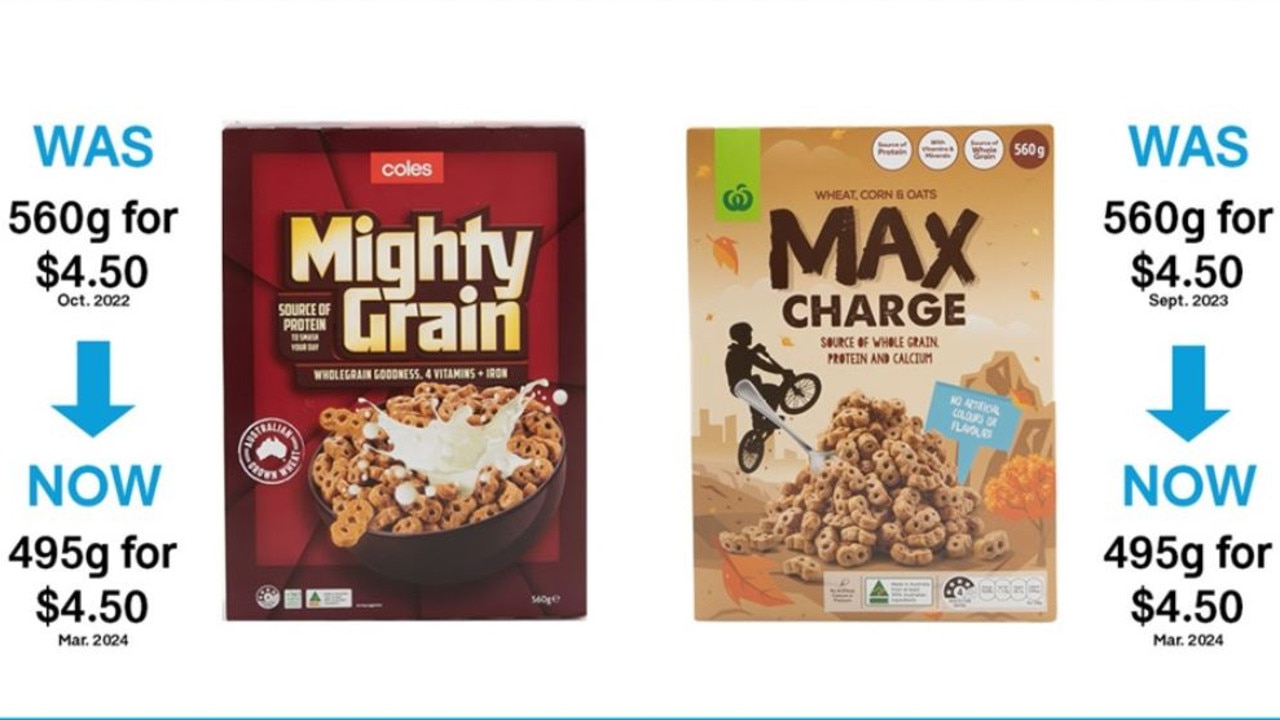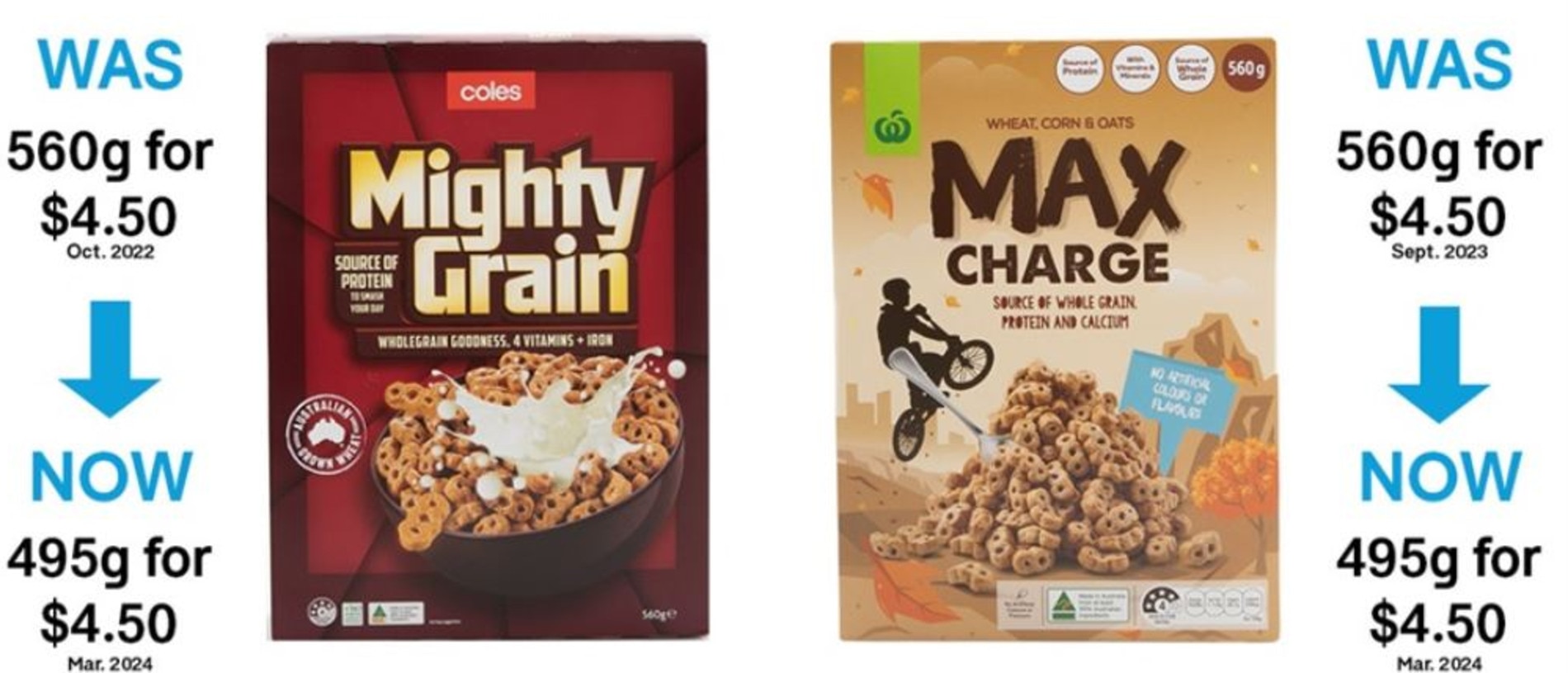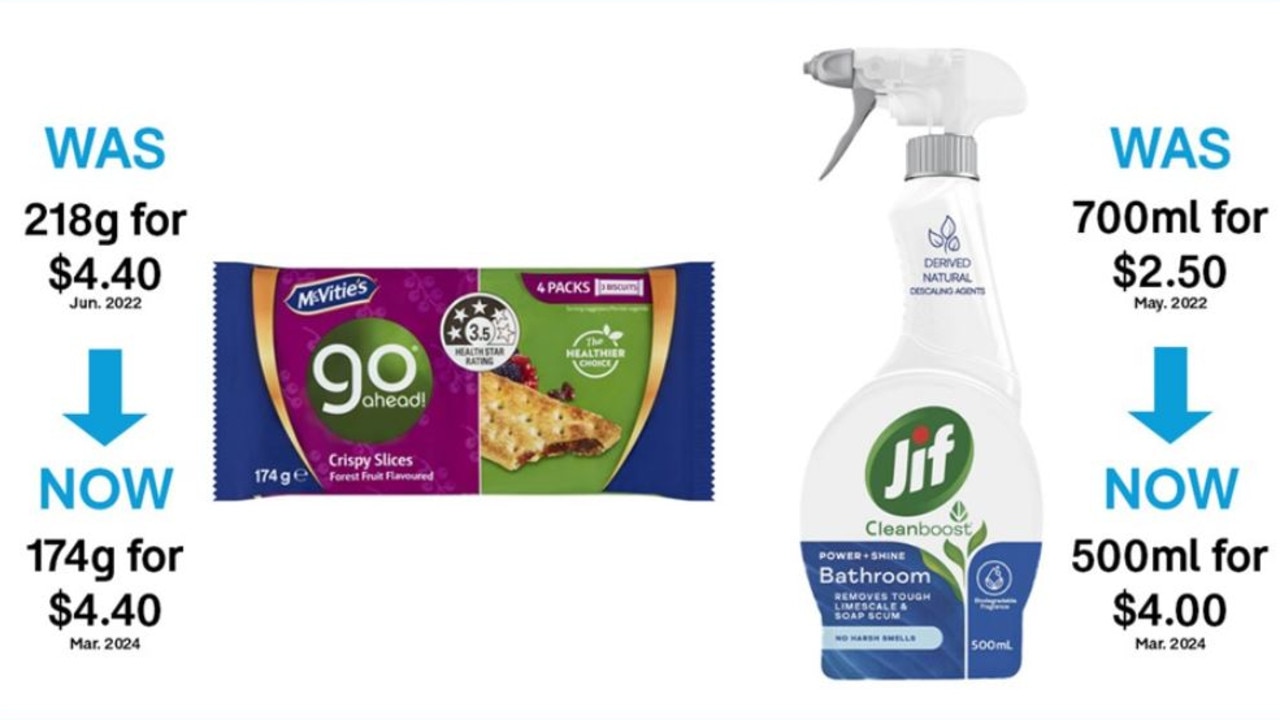Issue infuriating Aussie supermarket shoppers
Aussies are paying more for less as supermarket giants maintain or increase prices for products decreasing in size and weight.

Australian supermarkets are hitting customers with the “shrinkflation” phenomenon, where items are decreasing in size or weight while prices either remain or increase.
Consumer group Choice found multiple items on supermarket shelves had been hit by shrinkflation and called it an “erosion in value for money”.
Senior campaigns and policy adviser Bea Sherwood said consumers were sick and tired of paying more for less.
“We’ve heard from countless shoppers who are feeling frustrated by the prevalence of shrinkflation in supermarkets,” she said.
“People turn up to the shops to find the products they often buy have been reduced in size, and in some cases the price has increased.”

The cereal aisle is a serial offender, with breakfast foods shrinking in size but stagnant in cost.
Coles’ Mighty Grain cereal is one such item, sold in 560g packets in October 2022 for $4.50 but now in 495g packets for the same cost.
Their home brand cornflakes have suffered similarly, reduced from 475g in October 2022 to 440g now – but now costing an extra 20 cents.
Hot cross buns have also shrunk, with Community Co’s traditional and chocolate varieties reducing by 30g since last year, going from 480g to 450g.
The Easter staple has also gone up in price, from $4 to $4.50.

Ms Sherwood said shrinkflation was not illegal.
“In France, Carrefour supermarkets recently made the decision to warn consumers when products had shrunk in size and cost more, but there is nothing requiring supermarkets here to disclose shrinkflation (in Australia),” she said.
“Supermarkets should be required to let consumers know when a product has changed in size and value so that people can make informed decisions when they do their shopping.”
Choice’s analysis also found Woolworths’ original salted corn chips are $2.30 per packet, but the size has dropped from 200g in October 2023 to 175g in March 2024.
Red Rock Deli dips, McVitie’s Go Ahead forest fruit biscuits and Jif’s Power and Shine bathroom cleaner are also victims of shrinkflation.
In a statement, Woolworths said changes in size had been at the request of manufacturers, and it was “very aware of the cost pressures many of our customers are facing and we know that they often turn to our own brand products because of the value they provide”.
“On average, our own brand products cost 30 per cent less compared to similar branded products,” it said.
“In some cases there are rising input costs for products, whether that be the cost of raw ingredients or materials, labour or other manufacturing costs.
“In those instances we first look to minimise any increases to our customers by looking at greater efficiencies, productivity and sourcing.
“In these two cases (Max Charge cereal and salted corn chips), our suppliers requested the changes in pack sizes.
“We can confirm that there was no financial benefit to Woolworths by changing the size of these products, as the cost from the supplier to us did not decrease.
“On average, these two products are also more affordable than similar branded products.”
Coles said in a statement it was “not common” for the home brand items to change pack sizes.
More Coverage
“We can assure our customers that we have not profited from the change in pack size of Coles Mighty Grain and Coles cornflakes cereals and that all of the cost price relief has been retained by our supplier who has experienced increases in the cost of production and raw ingredients,” it said.
“Our supplier let us know it was changing the pack size for its cereal products both branded and private label so that it could simplify production and supply chain.
“We are working hard to keep prices affordable for Australian households.”





